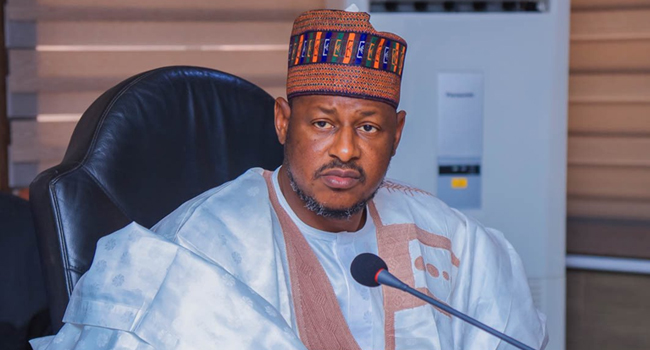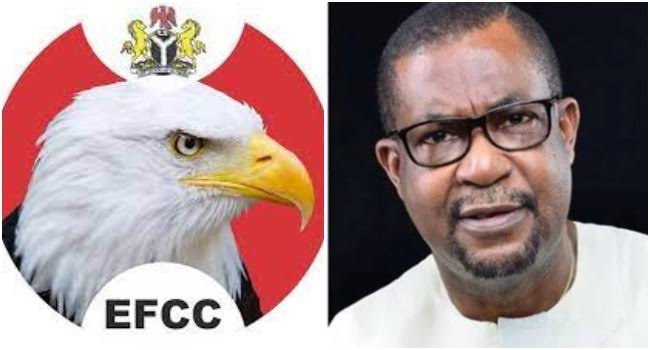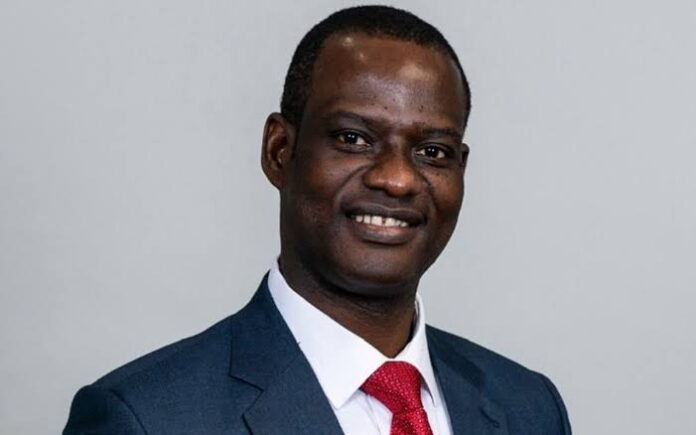…Bars NBC from requesting Pay-TV’s VAT documents, among other financial records
By Yahaya Umar
Federal High Court in Abuja on Wednesday struck down Section 2 (10) (b) of the National Broadcasting Code, 6th Edition, which required broadcasters to pay 2.5% of their “Gross Annual Income” as an Annual Operating Levy.
This judgment followed a suit filed by MultiChoice Nigeria Ltd and Details Nigeria Limited ,GO TV, against the National Broadcasting Commission ,NBC.
Justice James Omotosho, while delivering the judgment on Wednesday, ordered that the provision be struck down and replaced with ‘Net Annual Income’ instead of the existing ‘Gross Annual Income’.
The court also barred the National Broadcasting Commission ,NBC, from demanding the plaintiffs’ VAT remittance, FIRS reports, bank statements, audit adjustment journals, trial balances, and general ledgers for the purpose of computing the plaintiffs’ annual income, other than the annual audited accounts of the companies as stipulated in the NBC Code.
The judge stated that NBC can only access the other financial documents of MultiChoice through sister agencies such as the Federal Inland Revenue Service ,FIRS.
In suit number FHC/ABJ/CS/652/2024, the plaintiffs’ counsel, Moyosore Onigbanjo, SAN, sought several reliefs, including a determination of whether the NBC had the authority to demand any financial documents other than the annual audited accounts.
He also sought clarification on whether the term “gross annual income”, as used in the NBC Code, was fair and equitable.
“Income, as provided by the NBC Code 6th Edition, is not defined, nor is it defined in any previous editions or in the NBC Act of 2004″, the counsel submitted in court.
Onigbanjo also asked the court to determine whether the waiver or agreement between the plaintiffs and the NBC to pay a flat rate of N800,000,000 (Eight Hundred Million Naira) as an Annual Operating Levy for the years 2020–2023, including certain previous years, was binding on both parties.
Counsel to the NBC, Victor Ogude SAN, argued before the court that the agreement was not binding on the NBC, as the NBC’s acting Director-General who entered into the agreement on its behalf acted beyond his powers.
He contended that the NBC was entitled to the full amount payable.
Ogude also urged the court to uphold NBC’s oversight role over MultiChoice and Details Nigeria.
Delivering his verdict on Wednesday, Justice Omotosho, said with his experience as a trained economics teacher, running a business like the one operated by the plaintiffs requires significant capital and expenses. It is only fair, he said, that these expenses be deducted before the Annual Operating Levy is paid.
He stated that net income is the actual profit after subtracting all business expenses, adding that the taxable amount cannot be determined when calculating gross profit but should be based on net profit.
The judge emphasized that the Annual Operating Levy charged by NBC is a form of tax imposed on broadcasters.
He held that it would be unjust to impose it on their gross income.
“The proper and lawful income to impose a levy on is the net income”, he said, adding that this aligns with tax laws and global best practices. “In the United States, for instance, companies pay a flat rate of 21% on their profits, determined after all expenses have been deducted. Similarly, in the United Kingdom, a 25% corporation tax is imposed on company profits”.
“From this Court’s knowledge of economics, gross income implies all money that accrues to a person or business within a specific time. This gross income typically does not account for company expenditures such as production costs, rent, vendor payments, staff salaries, taxes, and other costs. It is only after all these payments are made that the company determines its profit, known as net income”.
“Consequently, this Court holds that Section 2 (10) (b) of the National Broadcasting Code, 6th Edition, which demands 2.5% of Gross Annual Income from broadcasters as an Annual Operating Levy, is unconscionable, unfair, and stifling to the plaintiffs”, Omotosho ruled.
Furthermore, Omotosho noted that the plaintiffs had provided credible and documentary evidence showing they had faithfully paid their Annual Operating Levy (AOL) without fail, and the defendant did not challenge these documents.
He said the NBC’s claim that it was entitled to N4 billion, as stated in its letter dated August 15, 2023, was unsupported by any evidence.
“Simply basing its claim on the fact that the plaintiffs increased their subscription fees is grossly insufficient. First, there is no evidence before the court that subscription fees were increased. Second, the defendant failed to consider that the plaintiffs may have increased their production costs or incurred additional expenses. This Court refrains from speculation as the defendant has invited it to do”, Omotosho added.
Regarding the agreement, Omotosho ruled that when parties express their intention and enter into a binding agreement, neither party is allowed to abandon the agreement simply because one or more of its terms are unfavorable.
The judge declared that the agreement between the defendant and MultiChoice, or the waiver on the payment of N800,000,000 (Eight Hundred Million Naira) throughout their current “DTH license”, is binding on both parties.
He also restrained NBC from demanding any additional sum from the plaintiffs as AOL for the years in which they have already made payments.
He issued a perpetual injunction restraining the NBC, its servants, agents, or privies from sanctioning, fining, or suspending the plaintiffs’ license, contrary to the court’s judgment on the issues raised.
MultiChoice has faced accusations from various agencies and Nigerian customers.
Over the years, the Pay-TV provider has been scrutinized by lawmakers and consumer protection tribunals over its pricing practices.
This year, a tribunal fined MultiChoice 150 million Naira and mandated a one-month free subscription for violating interim orders. However, MultiChoice appealed and filed for a stay of proceedings.
The tribunal rescheduled the case to November, but the lawyer who sued the Pay-TV company chose to withdraw the suit, which the tribunal approved without awarding costs.











